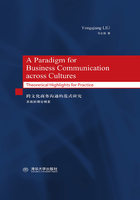
Preface 1
Today's global citizens operate business and management endeavors on a global scale. Globalization generates an increasing demand for effective communication in diverse cultural contexts and challenges the relevance of culture in operating businesses in the global village. Communication differences are apparent in many scenarios. Expatriates of international organizations operating abroad adopt their native cultural values to motivate employees of foreign cultures with an entirely different perspective. They use one culture's motives to move people from other cultures. In global marketing communication, the communicators use values systems of their native culture to develop advertising for other cultures. They use categorizations of one culture to describe others. Such divergence in attitudes, perspectives and priorities of suppliers, and customers with different cultural backgrounds have led to many project failures in international organizations. An in-depth understanding of cultural backgrounds and the potential impact on communication of the people one is interacting with can increase the probability of business success among investors, managers, entrepreneurs and employees operating in diverse cultures. However, effective cross cultural business communication needs to recognize and adopt an interdisciplinary perspective in understanding the cultural forces (Leung, K. et al., 2005). Therefore, we need a multidisciplinary paradigm to carry on effective and successful business communication in our contemporary global village.
I am pleased to read the book manuscript by Dr. Yongqiang LIU, my former Ph.D. student, who has undertaken more than twenty years of practice, teaching and research on cross cultural business communication. Drawing from his range of experiences, he integrates his insights on business and corporate strategy, language and culture, legal regulations, marketing and advertising, and negotiation into a comprehensive paradigm for cross cultural business communication. Building on the basic theories of business communication, his discussion on the critical relations between business strategy and culture, relations between language and culture, marketing and advertising communication across culture, and cross cultural negotiation greatly extends our understanding of the linkages. His well-defined framework on the complexities of business communication will be of value from academic and practical perspectives. The framework successfully bridges the gap between business functional areas, culture, language and strategies with an overarching paradigm to integrate multiple disciplines into a systematic framework. Moreover, his in-depth discussion on effectively linking cultural values with the application of language to carry out business functions from diverse cultural perspectives should be of value to both first-time and experienced cross cultural communicators.
The interdisciplinary approach of this book is unique and captures the complexity of the interrelationships between communication elements. I believe that readers will appreciate the usefulness of such an integrated view of business communication to effectively link relevant disciplines in an overall paradigm, which helps them to surpass business strategies, culture, and language barriers in global communication. The framework enlarges our understanding and describes the reality of today's business challenges. This book is a good choice for academic researchers to discover instructive insights, and it is also a worthwhile guide for practitioners who seek cross cultural advice for operating business on a global scale. The paradigm offers essential links between meaning and action that will define the relationship between business partners. Having read this book, I am sure the initial cultural shock in business partnerships may turn to cultural convergence and mutual understanding among global business partners.
Shuming ZHAO, Ph.D.
Professor and Dean
School of Business
Nanjing University
People's Republic of China
Note: Kwok Leung, Rabi S Bhagat, Nancy R Buchan, Miriam Erez, Cristina B Gibson. Culture and international business: recent advances and their implications for future research. Journal of International Business Studies. Washington: Jul, 2005. Vol. 36, Iss. 4; pp. 357-378.